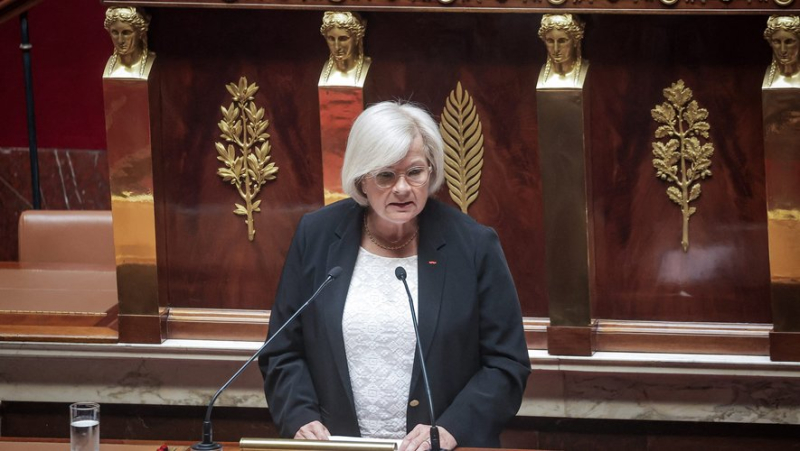The text on the end of life examined in the National Assembly: what are the main stuck subjects ?

Catherine Vautrin en première ligne, lundi, au Palais Bourbon. MAXPPP – CHRISTOPHE PETIT TESSON
Le texte, dont l’examen a débuté lundi, est au cœur d’une intense bataille parlementaire.
This is the most important societal reform of the five-year term. On Monday, deputies began examining the bill on "support for the sick and the end of life".
This sensitive text of 21 articles, included on the agenda of the hemicycle of the National Assembly for two weeks, aims to improve the provision of care palliatives. Above all, it establishes for the first time “assisted dying” under conditions.
The criteria have evolved
For this, you will need "to be of legal age, French (or to reside stably and regularly in France, Editor's note), able to express one's choice with discernment until the last stage, be suffering from a serious and incurable illness with a life-threatening prognosis in the short or medium term and physical or psychological suffering refractory to treatments", recalled Prime Minister Gabriel Attal, on May 26, in La Tribune Dimanche.
The Minister of Health, Catherine Vautrin, poses as "guarantee of the balance of the text". But will she have the means ? This is the subject of an intense parliamentary battle.
Thousands of amendments
Nearly 3 300 amendments were tabled, more than half of which were signed by LR and RN elected officials, against assisted suicide.
While the left-wing deputies, supported by elected officials from Macronie, on the contrary expanded this right in committee, further straining the right.
Two amendments from Renaissance and the PS now open it to people suffering from an incurable illness "in an advanced or terminal phase".< /em>
And no longer only those whose "vital prognosis" is engaged "in the short or medium term".
The Divided Majority
This leads to "distorting" the spirit of the project, deplores the Minister Delegate to Health, Frédéric Valletoux. This development was, however, voted for by the deputy Olivier Falorni (related to MoDem), general rapporteur of the text, and one of the four co-rapporteurs, Laurence Maillart-Méhaignerie (Renaissance), letting the divisions within the majority.
"An essential lock is blown",, for her part, worries MP Annie Genevard (LR), in Le Monde.
"We moved on", agrees Philippe Juvin, LR deputy and doctor. Diabetes, for example. It’s incurable, we don't know how to cure it and you may be in an advanced phase. This definition chosen to get rid of the term “middle term” which posed a problem is worse because it opens the field of end of life to people who are not going to die of their illness", he assures.
It would no longer be people who are going to die but who want to die
"In fact, we would have the most permissive law in the world because it would no longer be people who are going to die but who want to die",is also concerned, in Le Figaro, Jean Leonetti (LR), co-rapporteur of the law in force since 2005.
Another subject of divergence, the government wanted the lethal gesture to be carried out by the patient, unless he is not able to do so, the new version of the text leaves him the choice between the two options.
Deputies also wish to open this right to people who no longer have full discretion, if they had left advance directives.
Which could include Alzheimer’s patients. A new red line for the executive.
Obstruction offense
Another amendment (LFI), validated, with the agreement of Catherine Vautrin, provides for the creation of an offense of obstruction of the law. assisted dying” . MP Annie Vidal (Renaissance) wishes to create in response an offense of incitement to aid in dying.
In this tense political climate and while some caregivers express their discomfort, the Minister of Health will try to convince as many Macronists as possible to vote for the amendments which would restore the project in its first version.
One thing is certain: we are far, very far, at this stage, from the consensus hoped for by the government.




